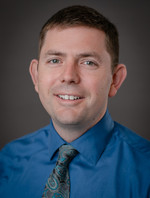




Mental Health
Unique Approach to Counseling Changes Lives
Published: March 16, 2020
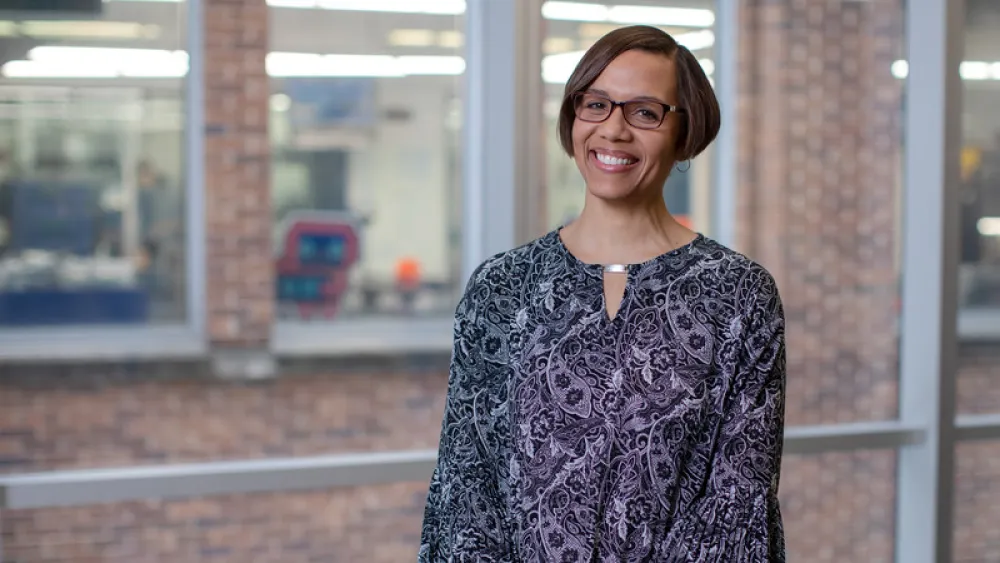
A Proactive Approach
Shelly Taylor, LCSW, LIMHP, is a counselor with the Methodist Hospital Community Counseling Program, which places licensed independent mental health practitioners in 27 Omaha Public Schools – every high school, middle school and alternative program – as well as 10 churches and community centers. The program was the first of its kind in the Omaha area and has served the community for 25 years.
The goal is to meet a growing community need. The Centers for Disease Control and Prevention estimates that as many as one in five children nationally experience a mental disorder in a given year, and the suicide rate for young people is at its highest level in nearly 20 years.
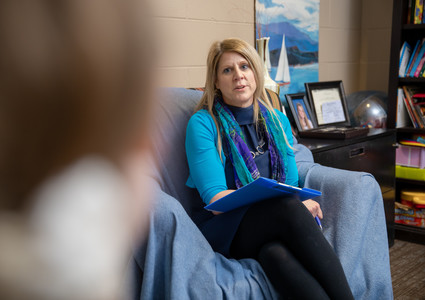
Counselors are trained to confidentially help students, families and individuals with challenges that may include depression, anxiety, family issues, trauma and grief.
“There’s a wide spectrum of kids that we work with and a wide spectrum of things that we see,” said Taylor, who sees clients at Burke High School and nearby St. Luke United Methodist Church. “A lot of these kids have had many obstacles to overcome.”
In some cases, the obstacles are as distressing as homelessness, violence, unemployment, drug abuse or death. When possible, counselors work to pair students and families with other community support organizations.
They’re also there for students in the early stages of more common problems with attendance, classwork, behavior and relationships.
“Our program is a proactive way of helping kids manage stress and learn coping skills so those small problems don’t turn into bigger issues,” Taylor said. “My favorite part of my job is being another consistent adult in their lives and really having those relationships.”
Suzi Yokley-Busby, EdD, a school counselor at Blackburn Alternative High School, describes it as an extra layer of support, trust and hope for students.
“Having somebody like a Methodist community counselor not only support our kids but also support me and our staff is a no-brainer,” she said. “I would wish that for every public school in the nation.”
“I Was Right at Home”
Emilie’s connection with Taylor began after a problem many teens face. During her sophomore year at Burke, she experienced relationship issues with a good friend. As her schoolwork suffered, a guidance counselor suggested she meet with Taylor.
Emilie immediately found a welcoming environment and a listening ear.
“It doesn’t really feel like you’re talking to somebody who’s intimidating,” Emilie said.“When I saw her for the first time, I felt like I was right at home. She just wants to help you.”
Over the course of a few meetings, Taylor helped Emilie develop techniques to cope with her issues. When she was diagnosed with anxiety and depression later that school year, Taylor was there. Every few weeks during lunch or breaks in class, Taylor and Emilie would meet to work on breathing techniques to calm her anxiety before tests or just chat about keeping things in perspective.
“It helped me feel like I wasn’t alone in what I was struggling with,” Emilie said. “It’s really good to have somebody on the outside that’s not your immediate family. Someone to say, ‘Here’s what you’re doing, and here’s my perspective.’”
Breaking Down Barriers
Placing counselors in schools is just one way the Community Counseling Program helps people access behavioral health services. It goes a step further by offering counseling in separate community locations.
Removing financial and accessibility barriers allowed over 7,800 individuals access to care in the 2018-19 school year.
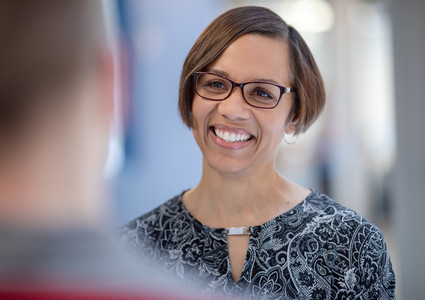
The church and community center locations are open to anyone, not just students or Methodist patients. And thanks to support from Methodist Hospital Foundation, no one is turned away for inability to pay.
“We are extremely fortunate to have donors who see the difference this program is making in our community and want to ensure that it continues,” said Tracy Madden-McMahon, president and CEO of Methodist Hospital Foundation. “Having someone you can turn to who can listen and give advice is life-changing in many cases.”
At St. Luke, Taylor’s office is steps away from the church’s after-school Teen Center. The center is a collaboration between the church, Burke High and Nebraska Methodist College that provides students with a range of support services, including academic assistance, postsecondary preparation and independent living skills training.
Director Abbey Jackson sees daily the challenges teens can face at school, home and everywhere in between. Referring students and families to a counselor is one more way she and Teen Center staff can put students on the path to success.
“Having a resource like the Community Counseling Program at Burke and St. Luke is an asset,” she said. “The accessibility of the program is huge.”
Impacting Lives
Emilie graduated from Burke in 2018 and still meets with Taylor at the community location at St. Luke. In fact, it’s not uncommon for students to continue with the Community Counseling Program after high school. When they do, counselors consider it an honor.
“That says a lot as far as the relationships that we’ve built and the impact that we’ve had,” Wayne said.
For Emilie, it’s the latest step on a journey of growth. The program and her relationship with Taylor have been invaluable as she became an adult.
“Shelly has always just been there to talk to, and we’ve been through some deep stuff,” Emilie said. “I have seen so much improvement in my mood and everything else.”
Emilie is an example of how the program is improving lives one person at a time.
“This program not only impacts their lives but also the lives of their children,” Taylor said. “It’s going to affect generations.”
*Emilie’s last name is omitted because of the sensitive nature of her experience.
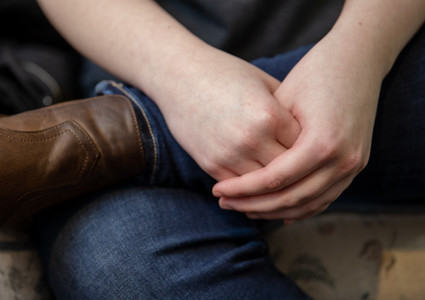
More Resources
- Learn more about the Methodist Hospital Community Counseling Program
- Read more from the spring 2020 issue of The Meaning of Care Magazine

